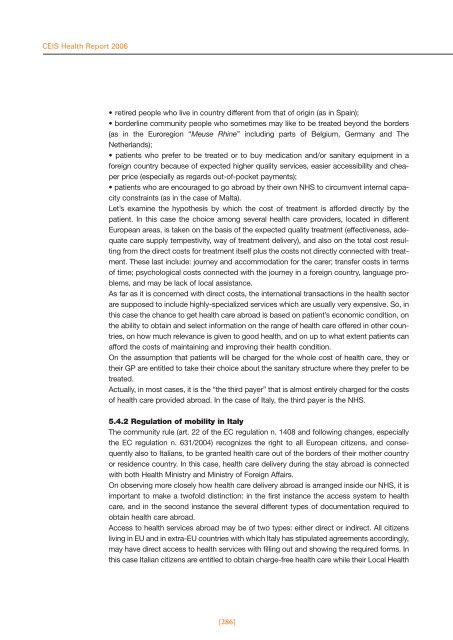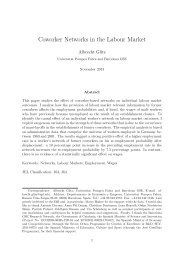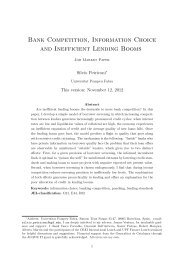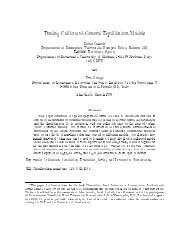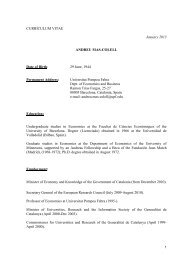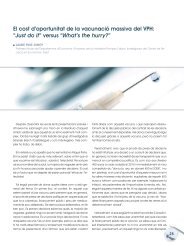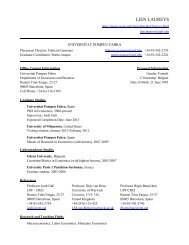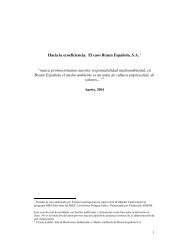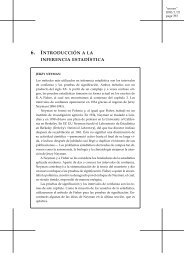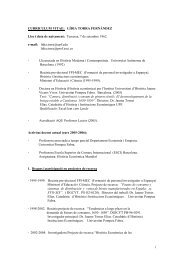Chapter 2
Chapter 2
Chapter 2
You also want an ePaper? Increase the reach of your titles
YUMPU automatically turns print PDFs into web optimized ePapers that Google loves.
CEIS Health Report 2006<br />
• retired people who live in country different from that of origin (as in Spain);<br />
• borderline community people who sometimes may like to be treated beyond the borders<br />
(as in the Euroregion “Meuse Rhine” including parts of Belgium, Germany and The<br />
Netherlands);<br />
• patients who prefer to be treated or to buy medication and/or sanitary equipment in a<br />
foreign country because of expected higher quality services, easier accessibility and cheaper<br />
price (especially as regards out-of-pocket payments);<br />
• patients who are encouraged to go abroad by their own NHS to circumvent internal capacity<br />
constraints (as in the case of Malta).<br />
Let’s examine the hypothesis by which the cost of treatment is afforded directly by the<br />
patient. In this case the choice among several health care providers, located in different<br />
European areas, is taken on the basis of the expected quality treatment (effectiveness, adequate<br />
care supply tempestivity, way of treatment delivery), and also on the total cost resulting<br />
from the direct costs for treatment itself plus the costs not directly connected with treatment.<br />
These last include: journey and accommodation for the carer; transfer costs in terms<br />
of time; psychological costs connected with the journey in a foreign country, language problems,<br />
and may be lack of local assistance.<br />
As far as it is concerned with direct costs, the international transactions in the health sector<br />
are supposed to include highly-specialized services which are usually very expensive. So, in<br />
this case the chance to get health care abroad is based on patient’s economic condition, on<br />
the ability to obtain and select information on the range of health care offered in other countries,<br />
on how much relevance is given to good health, and on up to what extent patients can<br />
afford the costs of maintaining and improving their health condition.<br />
On the assumption that patients will be charged for the whole cost of health care, they or<br />
their GP are entitled to take their choice about the sanitary structure where they prefer to be<br />
treated.<br />
Actually, in most cases, it is the “the third payer” that is almost entirely charged for the costs<br />
of health care provided abroad. In the case of Italy, the third payer is the NHS.<br />
5.4.2 Regulation of mobility in Italy<br />
The community rule (art. 22 of the EC regulation n. 1408 and following changes, especially<br />
the EC regulation n. 631/2004) recognizes the right to all European citizens, and consequently<br />
also to Italians, to be granted health care out of the borders of their mother country<br />
or residence country. In this case, health care delivery during the stay abroad is connected<br />
with both Health Ministry and Ministry of Foreign Affairs.<br />
On observing more closely how health care delivery abroad is arranged inside our NHS, it is<br />
important to make a twofold distinction: in the first instance the access system to health<br />
care, and in the second instance the several different types of documentation required to<br />
obtain health care abroad.<br />
Access to health services abroad may be of two types: either direct or indirect. All citizens<br />
living in EU and in extra-EU countries with which Italy has stipulated agreements accordingly,<br />
may have direct access to health services with filling out and showing the required forms. In<br />
this case Italian citizens are entitled to obtain charge-free health care while their Local Health<br />
[286]


